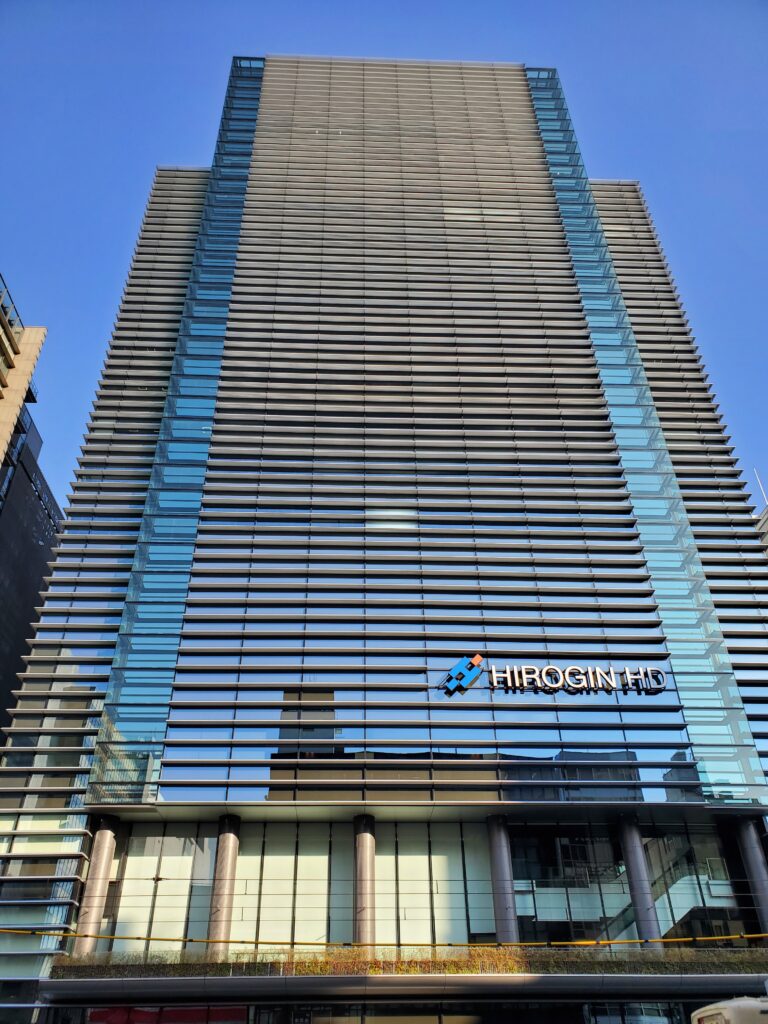
Hiroshima Bank (headquartered in Hiroshima City) is a traditional ship finance institution that has been financing ships from the perspective of promoting and supporting local industry. How will Hiroshima Bank promote ship financing despite skyrocketing prices for new ships? We asked Masayuki Okamura, General Manager of the Ship Finance Department. Also present at the interview were Shigekii Furuya, General Manager of the Ship Solution Office, Shunsuke Matsumura, Chief Examiner of the Ship Finance Department, and Toru Kawanishi, Manager of the Ship Solution Office. (Interviewer: Hirofumi Yamamoto)
–What has changed in Hiroshima Bank’s ship finance business in recent years?
”We continue to handle new shipbuilding projects. Not only has there been an increase in sale-and-leaseback (S&LB) transactions, in which Japanese shipowners buy ships owned by overseas shipping companies and lease them back to others for reuse. Newbuilding prices are soaring, but Japanese shipowners are also committing to newbuildings in 2026-27 as they raise individual corporate loans and their funds.”
■Deep dive into needs
–Hiroshima Bank has decided to establish its representative office in Singapore in January 2024 and start operations in April. What is the purpose of this project?
”We are preparing to establish a Singapore subsidiary, HIROGIN GLOBAL CONSULTING PTE. The new company will be capitalized at S$1 million (approximately 111.26 million yen). The new company aims to provide support to Japanese shipowners who do business with us and have a local office in Singapore. We want to start by delving deeper into the needs of Japanese shipowners in Singapore.”
–In what specific respects will Hiroshima Bank’s lending policy change from what it has done in the past?
“Hiroshima Bank, as a member of the Poseidon Principles, aims to fulfill its social responsibility as a member of a group of listed companies. For example, the Bank will not refuse to provide loans for ships that are not state-of-the-art. The Poseidon Principles are only one point of view, and we do not consider them to be an absolute measure.”
–What was the balance of loans outstanding at the end of September 2023?
“The balance for ocean-going vessels was 784.9 billion yen, for shipbuilding 94.6 billion yen, and for domestic vessels 22.2 billion yen. The balance for ocean-going vessels is on an increasing trend due to an increase in the number of loan projects and the effect of the depreciation of the yen. 70% of vessels are chartered overseas and 30% are chartered in Japan. The main time charter (TC) period for newly chartered vessels is 3-5 years, and long-term chartering is almost limited to S&LB”.
— In recent years, Japanese shipowners have adopted a multi-currency approach to avoid foreign exchange risk by using yen, dollar, and franc as loan currencies.
”Some shipowners use multiple currencies. “Some shipowners are adopting multiple currencies. If they only use the yen or the dollar, there is a risk of exchange rate fluctuation, so they adopt the franc, which has an interest rate in the middle of the range. The dollar and the franc make up a certain percentage of the bank’s portfolio.”
■Observing the impact of the dispute
–In S&LB, ships owned by Japanese shipowners are BBC (bareboat), and ship management is provided by an overseas operator (ship operator). With geopolitical risks on the rise, such as Russia’s aggression in Ukraine and the Israeli conflict, how is the credit management for BBC?
”There are some ship chartering projects for Israeli shipping companies in our bank’s loan portfolio. We closely monitor the impact of geopolitical risks, not only for Israeli shipping companies but also for BBC, as the shipowners themselves cannot prevent a ship financed by us from going to a conflict zone. For this reason, we feel it is necessary to strengthen our qualitative analysis and credit management of overseas operations even more than before”.
–Orders for new LNG (liquefied natural gas) carriers are increasing, especially from Japanese shipowners.
”Of course, they are eligible for financing. We would like to consider co-financing, although the basic policy is to finance one ship at a time.
■Profile of Masayuki Okamura
He joined Hiroshima Bank in 1996 and worked at the Onomichi, Kure, Imabari, and Kobe branches before taking up his current position in April 2023. 49 years old.